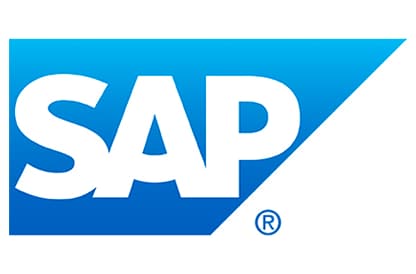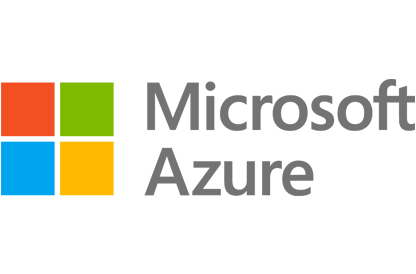Why OpenText
Why OpenText
Overview Why OpenText
OpenText brings decades of expertise to help you unlock data, connect people and processes, and fuel AI with trust
Manage and connect data
Unify data seamlessly across your enterprise to eliminate silos, improve collaboration, and reduce risks
AI-ready information
Get AI-ready and transform your data into structured, accessible, optimized information
Built-in security and compliance
Meet regulatory and compliance requirements and protect your information throughout its lifecycle
Empowering people
Overview Empowering people
OpenText helps people manage content, automate work, use AI, and collaborate to boost productivity
Customers
See how thousands of companies around the world are succeeding with innovative solutions from OpenText
Employees
Our people are our greatest asset; they are the life of the OpenText brand and values
Corporate Responsibility
Learn how we aspire to advance societal goals and accelerate positive change
Partners
Find a highly skilled OpenText partner with the right solution to enable digital transformation
How we compare
Content Management
Service Management
Deploy anywhere
Overview Deployment options
Explore scalable and flexible deployment options for global organizations of any size
Sovereign cloud
Local control. Global scale. Trusted AI
Private cloud
Your cloud, your control
On-premises
Free up resources, optimize performance and rapidly address issues
Public cloud
Run anywhere and scale globally in the public cloud of your choice
AI leadership
Overview Aviator AI
See information in new ways
OpenText™ Aviator AI
AI that understands your business, your data, and your goals
OpenText™ MyAviator
Say hello to faster decisions. Your secure personal AI assistant is ready to get to work
OpenText™ Business Network Aviator
Gain better insights with generative AI for supply chains
OpenText™ Content Aviator
Power work with AI content management and an intelligent AI content assistant
OpenText™ Cybersecurity Aviator
Improve your security posture with AI cybersecurity and agile threat detection
OpenText™ DevOps Aviator
Enable faster app delivery, development, and automated software testing
OpenText™ Experience Aviator
Elevate customer communications and experiences for customer success
OpenText™ Service Management Aviator
Empower users, service agents, and IT staff to find the answers they need
Aviator AI
Overview Aviator AI
See information in new ways
OpenText™ Aviator AI
AI that understands your business, your data, and your goals
OpenText™ MyAviator
Say hello to faster decisions. Your secure personal AI assistant is ready to get to work
OpenText™ Business Network Aviator
Gain better insights with generative AI for supply chains
OpenText™ Content Aviator
Power work with AI content management and an intelligent AI content assistant
OpenText™ Cybersecurity Aviator
Improve your security posture with AI cybersecurity and agile threat detection
OpenText™ DevOps Aviator
Enable faster app delivery, development, and automated software testing
OpenText™ Experience Aviator
Elevate customer communications and experiences for customer success
OpenText™ Service Management Aviator
Empower users, service agents, and IT staff to find the answers they need
Analytics
Overview Analytics
Predict, act, and win with real-time analytics on a smarter data platform
OpenText™ Aviator Search(AI)
Give users access to the answers they need, faster and easier, with multi-repository AI-based search that lets you contextualize everything from clicks to conversations
Business Network
Overview Business Network
Connect once, reach anything with a secure B2B integration platform
Content
Overview Content
Reimagine knowledge with AI-ready content management solutions
OpenText™ Content Aviator(AI)
Supercharge intelligent workspaces with AI to modernize work
Cybersecurity
Overview Cybersecurity
Integrated cybersecurity solutions for enterprise protection
OpenText Cybersecurity for SMBs & MSPs
Purpose built data protection and security solutions
OpenText™ Cybersecurity Aviator(AI)
Reinvent threat hunting to improve security posture with the power of agile AI
DevOps
Overview DevOps
Ship better software—faster—with AI-driven DevOps automation, testing, and quality
Experience
Overview Experience
Reimagine conversations with unforgettable customer experiences
Observability and Service Management
Overview Observability and Service Management
Get the clarity needed to cut the cost and complexity of IT operations
OpenText™ Service Management Aviator(AI)
Redefine Tier 1 business support functions with self-service capabilities from private generative AI
APIs
Overview APIs
Build custom applications using proven OpenText Information Management technology
OpenText™ API Services
Build it your way with OpenText Cloud APIs that create the real-time information flows that enable custom applications and workflows
Device and Data Protection
Overview Device and Data Protection
Protect what matters, recover when it counts
Unified Endpoint Management Tools
- OpenText™ Endpoint Management
- OpenText™ ZENworks Suite
- OpenText™ ZENworks Service Desk
- OpenText™ ZENworks Configuration Management
- OpenText™ ZENworks Endpoint Security Management
- OpenText™ ZENworks Full Disk Encryption
- OpenText™ ZENworks Endpoint Software Patch Management
- OpenText™ ZENworks Asset Management
Solutions
Trusted Data & AI
Overview Trusted Data & AI
Secure information management meets trusted AI
OpenText AI Data Platform
A unified data framework to elevate data and AI trust
OpenText Aviator Studio
A place where you can build, deploy, and iterate on agents in your data's language
OpenText Discovery
A set of tools to help ingest data and automate metadata tagging to fuel AI
OpenText Data Compliance
A suite of services and APIs that make governance proactive and persistent
OpenText Aviator AI Services
Professional services experts who help you on your AI journey
Information Reimagined
Overview Information Reimagined
Get greater visibility and sharper insights from AI-driven information management. Ready to see how?
Knowledge reimagined
Transform daily work with enterprise content management powered by AI
Service Management reimagined
Cut the cost and complexity of IT service management, AIOps, and observability
Connections reimagined
AI-powered B2B integration for supply chain success
Conversations reimagined
Drive value, growth, and loyalty with connected customer experiences
Engineering reimagined
Agile development and software delivery? It only seems impossible
Security reimagined
Cybersecurity for the Enterprise
Decisions reimagined
Unlock insights with AI data analytics
Artificial Intelligence
Overview Aviator AI
See information in new ways
OpenText™ Aviator AI
AI that understands your business, your data, and your goals
OpenText™ MyAviator
Say hello to faster decisions. Your secure personal AI assistant is ready to get to work
OpenText™ Business Network Aviator
Gain better insights with generative AI for supply chains
OpenText™ Content Aviator
Power work with AI content management and an intelligent AI content assistant
OpenText™ Cybersecurity Aviator
Improve your security posture with AI cybersecurity and agile threat detection
OpenText™ DevOps Aviator
Enable faster app delivery, development, and automated software testing
OpenText™ Experience Aviator
Elevate customer communications and experiences for customer success
OpenText™ Service Management Aviator
Empower users, service agents, and IT staff to find the answers they need
Industry
Overview Industry solutions
Improve efficiency, security, and customer satisfaction with OpenText
Energy and resources
Transform energy and resources operations with cloud, cybersecurity, and AI
Financial services
Boost customer experience, compliance, and efficiency with AI
Government
Reimagine your mission with government-secure information management
Healthcare and life sciences
Improve care delivery and patient engagement with AI-powered solutions
Legal
Modernize legal teams with automated, AI-powered legal tech solutions
Manufacturing
Modernize manufacturing operations and logistics to reduce costs and ensure compliance
Retail and consumer goods
Enhance consumer engagement with omnichannel retail solutions and AI
Enterprise Application
Overview Solutions for Enterprise Applications
Run processes faster and with less risk
Services
Services
Overview Services
Achieve digital transformation with guidance from certified experts
Professional Services
Modernize your information management with certified experts
Customer Success Services
Meet business goals with expert guidance, managed services, and more
Support Services
Turn support into your strategic advantage
Managed Services
Free up your internal teams with expert IT service management
Learning Services
Discover training options to help users of all skill levels effectively adopt and use OpenText products
Professional Services
Overview Professional Services
Modernize your information management with certified experts
Customer Success Services
Overview Customer Success Services
Meet business goals with expert guidance, managed services, and more
Support Services
Overview Support Services
Turn support into your strategic advantage
Managed Services
Overview Managed Services
Free up your internal teams with expert IT service management
Learning Services
Overview Learning Services
Discover training options to help users of all skill levels effectively adopt and use OpenText products
Partners
Find a Partner
Overview Find a partner
Information is the heartbeat of every organization. We build information management software so you can build the future
Cloud Partners
Overview Cloud Partners
OpenText partners with leading cloud infrastructure providers to offer the flexibility to run OpenText solutions anywhere
Enterprise Application Partners
Overview Enterprise Application Partners
OpenText partners with top enterprise app providers to unlock unstructured content for better business insights
Partner Solutions
Overview Partner Solutions
Discover flexible and innovative offerings designed to add value to OpenText solutions
Resources for Partners
Overview Resources for Partners
Discover the resources available to support and grow Partner capabilities
Support
Overview Customer Support
Get expert product and service support to accelerate issue resolution and keep business flows running efficiently
Resources
Overview Resources
Explore detailed services and consulting presentations, briefs, documentation and other resources
Choose your region:
Europe, Middle East and Africa
Asia–Pacific
What is cloud repatriation?

Overview
Cloud repatriation is the process of migrating workloads, including databases, from public cloud environments back to on-premises data centers, private clouds, or hybrid infrastructures. Organizations pursue repatriation to improve security, reduce costs, enhance performance, or meet data sovereignty requirements.
Based on Foundry’s Cloud Computing Study in 2024, 90% of IT Decision Makers have experienced some obstacles with their cloud adoption over the past 12 months, such as:
- Budget/cost
- Security and/or compliance concerns
- Integration/migration challenges
- Skills gaps
- Performance and reliability
- Internal resistance
And while the reasons for repatriation vary, but for over 51% of the decision makers, the issues lie with security.
Cloud repatriation
Why are companies repatriating database workloads?
Security and control: Companies with stringent security needs prefer on-premises solutions to minimize attack surfaces, enforce custom security policies, and ensure complete visibility into infrastructure vulnerabilities.
Performance optimization: In cloud environments, latency-sensitive applications, high-throughput analytics, and mission-critical database workloads may experience performance limitations. On-premises and private cloud solutions can offer more predictable performance with direct hardware optimizations.
Cost efficiency: Public cloud costs, including data egress fees, unpredictable pricing models, and long-term TCO considerations, often drive organizations to reassess their cloud strategies. By repatriating, businesses can reduce operational expenses and gain greater control over infrastructure costs.
Data governance and compliance: Regulatory requirements, such as GDPR, HIPAA, and industry-specific mandates, often require strict data residency and sovereignty measures. Repatriation ensures organizations maintain direct control over sensitive data.
Vendor lock-in concerns: Some organizations repatriate to avoid dependency on a single cloud provider, ensuring flexibility and avoiding excessive costs associated with proprietary cloud services.
Common approaches to cloud repatriation
Hybrid cloud strategies
Many businesses repatriate core database workloads while keeping some applications in the public cloud (SaaS), leveraging a hybrid architecture for optimal flexibility.
Private cloud deployment
Organizations build private clouds using containerized or virtualized environments to replicate cloud benefits while retaining control.
On-premises infrastructure
Businesses invest in high-performance, on-premises infrastructure optimized for database workloads, often integrating advanced storage and compute solutions.
What types of workloads should be repatriated?
Cloud repatriation isn’t a one-size-fits-all solution. The best candidates for repatriation are high-cost, latency-sensitive, compliance-driven, or security-critical workloads that benefit from better cost efficiency, performance, and data control when run on-premises, in private clouds, or hybrid environments.
Key considerations before cloud repatriation
Workload suitability: Not all workloads benefit from repatriation—identify which databases have high latency sensitivity, regulatory needs, security, or cost concerns.
Skill and resource availability: On-premises infrastructure requires in-house expertise; assess whether your team has the necessary skills to manage database workloads effectively.
Migration complexity: Evaluate the complexity of moving large-scale database workloads and assess potential downtime, data consistency issues, and application dependencies.
Total cost of ownership (TCO) analysis: Ensure repatriation will lead to cost savings when factoring in infrastructure, staffing, and maintenance costs.
How OpenText can help migrate your data workloads
As organizations seek greater control over costs, performance, security, and data sovereignty, moving database workloads from SaaS environments to on-premises, private cloud, or hybrid architectures requires a strategic and well-executed approach. OpenText Analytics Database (Vertica) offers the tools, expertise, and flexibility needed to facilitate a seamless migration while optimizing performance and scalability.
Flexible deployment across any infrastructure
- Deploy OpenText Analytics Database on-premises, in private cloud, or in hybrid model without vendor lock-in.
- Supports bare metal, virtualized environments, Kubernetes, and containerized deployments.
- Integrates with leading cloud and on-prem storage solutions for optimized performance.
Security, compliance and data sovereignty
- Meet GDPR, HIPAA, and industry-specific compliance requirements with on-prem or private cloud control.
- End-to-end encryption, role-based access controls, and audit logging for enhanced security.
- Eliminate reliance on third-party SaaS providers for data privacy and sovereignty with OpenText’s highly secure solution for petabyte-scale analytics
High-performance data migration and integration
- OpenText’s migration tools and services enable smooth transition from SaaS-only databases. ETL, batch processing, and real-time streaming support efficient data transfer.
- Parallel processing and data compression reduce migration time and storage costs.
Cost optimization and TCO reduction
- Avoid unpredictable cloud costs (compute, storage, and egress fees).
- Optimize licensing models for lower total cost of ownership (TCO).
- Supports workload elasticity with hybrid and on-prem scaling options.
Advanced analytics and AI and ML capabilities
- Leverage in-database machine learning to train and deploy models at scale for AI-driven insights.
- Columnar storage and MPP architecture ensure high-speed querying.
- Run SQL queries directly on data stored in object storage (e.g., Amazon S3, HDFS, Azure Data Lake, Google Cloud Storage) .
Expert support and migration services
- OpenText Professional Services assist with assessment, planning, and execution.
- Automated monitoring capabilities reduce operational burden.
- 24/7 enterprise-grade support for ongoing optimization and troubleshooting.
The cloud repatriation shift: What the data tells us
Resources
Related products
OpenText™ Analytics Database
Analyze massive data sets with minimal compute and storage
Data lakehouse and analytics
Transform data into decisions with real-time, AI-powered insights





